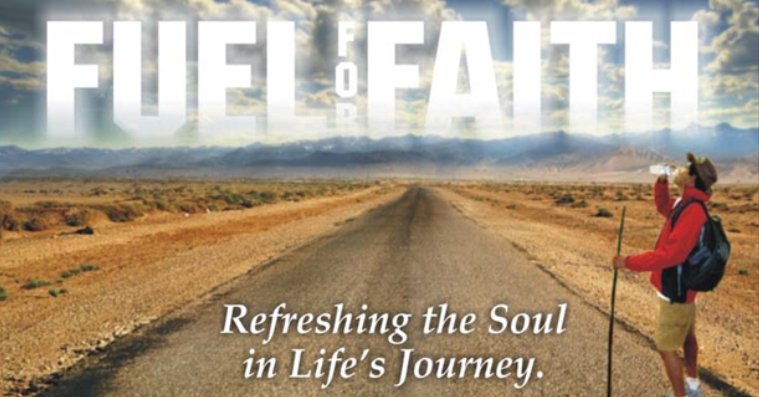
“We promise according to our hopes and perform according to our fears” said the 17th century French classical author Francois Rochefoucauld. Fear is one of our basic instincts and is our survival response. It gives the alarm when it senses danger or a potential loss that can hurt you. In a sense we were created with this emotion that is often helpful in keeping us away from danger. However, in real life there are more people who suffer from the negative power of this emotion than benefit from its ability to keep us safe. H. P. Lovecraft a writer of horror stories says “fear is the oldest and strongest emotion of mankind.” If you remember fear was one of the earliest emotions Adam and Eve experienced in the garden right after their fall. Since then till today many wise men and psychologists have tried to unfold the mystery of fear and have given many helpful suggestions to overcome this emotion, yet it is despairing to see many whose lives are often shadowed by their fears.
Fear and anxiety are often used synonymously and are confused many times. Even though they are both very similar it is helpful to understand their difference. Tim Jackson in his article “When fear seems overwhelming” distinguishes between fear and anxiety and writes “Fear is an immediate and intense internal alarm system that alerts us to the presence of danger. It revs up our whole being – body, mind and emotions – and rivets our focus on one primary goal: protection. It prepares us either to flee from or fight against the perceived danger. Anxiety is the pervasive feeling of apprehension that lingers long after the danger has subsided. This nagging feeling of dread uses a great deal of emotional energy worrying about future negative events that are both unpredictable and uncontrollable.”
“We promise according to our hopes and perform according to our fears” – Francois Rochefoucauld.
In his book “The Cry of the Soul”, Psychologist Dan Allender writes, “Different people fear different things with different levels of intensity; but all of us fear what we cannot control. Fear is our response to uncertainty about our resources in the face of danger; when we are assaulted by a force that overwhelms us and compels us to face that we are helpless and out of control. Fear is provoked when the threat of danger (physical, emotional, relational) exposes our inability to preserve what we most deeply cherish.” There are many interesting facts we can learn from Dan Allender’s description of fear, but let us focus on three important truths about fear. First, different people fear different things and the level of intensity is different. That explains why we cannot understand the fears of others and even if we could relate to the fears, maybe we have to be careful before we give the impression that we know how it feels.
“The beginning of anxiety is the end of faith, and the beginning of true faith is the end of anxiety.” – George Mueller
Secondly, fear is our response to uncertainty; it originates from our inability to know the future and our suspicion that we are inadequate to handle the possible crisis or change. I do not think we will ever completely live a fear-free life, because on this side of eternity we will always have things and situations that are out of our control. Just because things are out of our control that does not mean that we should be afraid or live in fear. Just like living in unbelief is a choice many make despite all the evidence for God’s existence, living in fear is a choice that many of us make because we find it difficult to trust and leave things to God’s hand. In the words of George Mueller “The beginning of anxiety is the end of faith, and the beginning of true faith is the end of anxiety.” How we respond to uncertainties and face our fears is a good reflection of our faith in God.
Finally, we fear the most when there is a potential threat to someone or something we cherish the most in life. To be very blunt and honest many of us pay least attention or show no emotion when we witness poverty, injustice and life being endangered in a remote or distant place in the world. In other words we are more afraid of losing a friend or a family member than of an earthquake somewhere in the world that can kill hundreds of people. We fear losing something or someone who we cherish most because our relationship with them plays a big role in our happiness or pain in life. It is natural to fear losing someone who we believe is vital to our survival, but since all people and things are perishable I guess instead of fearing the separation we should cherish and enjoy the opportunities to share our lives together.
When fear cripples your life with a potential danger that is storming on your life, remember that our God is greater than all our fears. In a world filled with danger and uncertainty, one thing is certain—we cannot eliminate or avoid fear but we can chose not to be crushed by fear or let fear dominate or dictate our lives. The Bible uses the phrase “Fear not” more than 200 times in different contexts. As his Children God wants us to understand that if there is anyone in this world that can live without fear, it is us who have a relationship with him. God offers us freedom from such overwhelming fear and commands us to trust in Him; however whether we crawl with our own fears or fly as we surrender them to God is our choice. David was a man who was surrounded by so many uncertainties as he was haunted by an enemy with an army. His formula was simple “When I am afraid, I will trust in You” (Psalm 56:3). Saul was crushed under his own fears while David went on to become the next King because he chose to trust God rather than letting fear control his life.
In a world filled with danger and uncertainty, one thing is certain—we cannot eliminate or avoid fear but we can chose not to be crushed by fear or let fear dominate or dictate our lives.
– – Author: Rev. Francis Burgula – –
